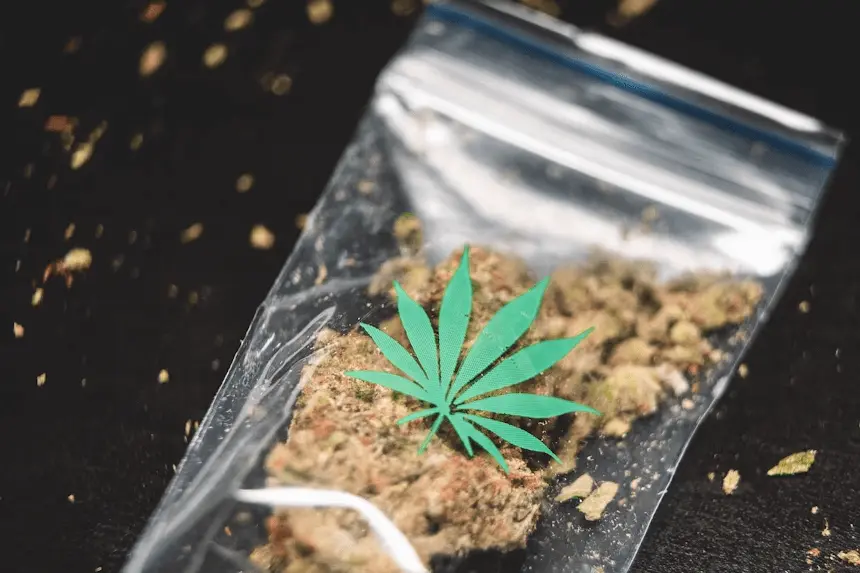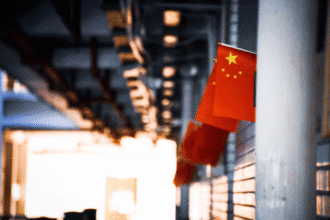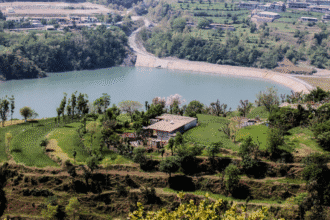The marijuana trade in Thailand is experiencing a boom rate that is under serious consideration due to the importation of the banned drug to the United Kingdom, which has raised eyebrows globally and anger among the locals. Thailand, which was once known to be lenient on weed use, is now moving towards clamping down on what many refer to as a weed wild west. There have been more than 11,000 dispensaries and increases in black-market exports that are forcing the authorities to insist on tighter regulations, such as the need to limit its use to medical prescriptions only. This puts pressure on the government to be more active in applying the laws and reducing illegal activities. Since the number of smuggling cases has increased, the cannabis future of Thailand has come to a standstill as the nation has to strike a balance between financial gain and global accountability.
- What brought about the need to legalize the cannabis industry in Thailand?
- What was the purpose of Thailand’s decriminalization of cannabis?
- What has the liberalization of cannabis had?
- What effect has Thai cannabis had on the UK?
- What are the Thai government measures?
- What are the loopholes in the laws that concern cannabis in Thailand?
- What happens to small-scale cannabis businesses?
- Is there support for the new regulations from the public?
- What are the implications for smugglers?
- What are the international partnerships that are bebeingngaged by Thailand?
- Final Thoughts
What brought about the need to legalize the cannabis industry in Thailand?
The explosive growth of the marijuana market in Thailand after its decriminalization in 2022 is a cause of real concern at home and abroad. The Thai administration is now interfering and is trying to control what has been termed the wild west of weed. This has been occasioned by the fact that the urgency has been caused by the influx of Thai cannabis smuggling into other countries such as the UK. The British officials have caught hundreds of Thai-grown marijuana carrying couriers, most of whom are young tourists. Consequently, Thailand faces a lot of pressure to establish order in its thriving yet unruly cannabis industry. Here is the link to our article on Balkans Smuggling Crackdown
What was the purpose of Thailand’s decriminalization of cannabis?
First, the Thai government wanted to decriminalize both medical and economic use of cannabis. In 2022, Thailand is set to be the first Asian country to make marijuana use legal in the hopes that small-scale farmers and entrepreneurs will benefit. There were designs to utilise a control measure very shortly after legalisation. Nevertheless, the practice of an uncontrolled proliferation of cannabis dispensaries came up due to the delay in legislation and political obstacles, and currently, the country has more than 11,000 dispensaries.
What has the liberalization of cannabis had?
The liberal policy created a mania to invest. Neon signs were introduced to cannabis shops that were all over the place in cities such as Bangkok, especially the tourist areas, such as the Khao San Road. Such technically illegal products as marijuana brownies and gummies were sold online and shipped within hours. This soft climate, however, opened up loopholes to free Thailand cannabis smuggling, where drug syndicates took advantage of the gaps in the regulations, and they could smuggle cannabis to different countries.
What effect has Thai cannabis had on the UK?
There has been an extreme increase in the importation of cannabis in the UK via Thailand. In 2023, the British stopped 142 couriers who possessed 5 tonnes of cannabis. It rapidly increased to 800 couriers and 26 tonnes by 2024. The majority of the smugglers are young Britons who are enticed to do the marijuana trafficking using a suitcase. Thai authorities attest that this route is a good option due to little punishment and ineffective enforcement. In the UK, the National Crime Agency is presently liaising with the Thai Customs to stamp out this worrying trend of Thai cannabis drug smuggling. Here is the link to our article on Trump Smuggling Crackdown
What are the Thai government measures?
The public health ministry in Thailand has suggested new policies that will only allow the usage of marijuana to persons who have a medical prescription. There is a vigorous new attempt to criminalize recreational use as well. The hope of the authorities is that such measures will not only regulate the internal market but also stop any further smuggling abroad. Customs officers are now using intelligence in travel patterns to stop the smugglers and implement the existing license obligations more rigidly.
What are the loopholes in the laws that concern cannabis in Thailand?
Even after the legalization, the formal law on cannabis has not been enacted in parliament. There are vested interests dithering on progress and the foreign syndicates operating in Thai-owned businesses behind high-potency strains. These goods are later seeping into international markets, with the aspect of the Thailand cannabis smuggling problem worsening. Thai growers are meant to record all the mainstream sales in government-issued forms. Nonetheless, enforcement is not effective since they have limited monitoring and infine violations do not attract heavy fines.
What happens to small-scale cannabis businesses?
The smaller manufacturers are reeling because of excess supply and falling prices. The critics have contended that the proposed regulations would hit the local businesspersons unfairly and would not restrain Black Market activities. Others have staged protests at the office of the Prime Minister, asking him to pursue a more balanced regulation. Their view is such that it is not correct to crack down on legal operators, with the smugglers falling through the cracks.
Is there support for the new regulations from the public?
The view of the masses is still divided. Although this move to introduce new rules by some business leaders will be effective in restoring order and building international credibility, some would argue that the new laws may be used to enforce the existing laws. In this behavior, critics assert that the small livers will only be suffocated with reactionary policies without dealing with the smuggling problem that has resulted from a result of pressure of foreigners. The advocacy groups are demanding that the issue is not one of legalization but rather of inadequate enforcement.
What are the implications for smugglers?
There are high risks relating to the Thailand cannabis smuggling. Individuals who are apprehended suffer stiff implications in the countries where they are accused. In 2024, 173 adults, almost all of Thai nationality, were charged in the UK and given 230 years ‘prison terms collectively. Notwithstanding these consequences, the risk is worth it to the smugglers as there is money in the foreign market. Thai officials are hoping that awareness campaigns and the toughening of local policies are going to serve as deterrents.
What are the international partnerships that are bebeingngaged by Thailand?
Thailand is in collaboration with other world intelligence agencies, such as the National Crime Agency in the UK, to detect trends and stop the exportation of cannabis. The two countries want to avoid similar trafficking in the future, and information is shared on intelligence and a maintained watchlist on traveling. However, domestic reforms are required, without which international cooperation can become insufficient to prevent Thailand’s cannabis smuggling.
Final Thoughts
The Thailand cannabis smuggling case serves as a clear example of how deregulation without oversight can spiral into unintended consequences. Although legalising cannabis was initially seen as a progressive move for economic growth and medical advancement, the lack of a structured framework opened the door to misuse and international friction. As Thailand moves toward stricter regulation, the goal must be to create a balanced system that protects public health, upholds global credibility, and promotes responsible entrepreneurship. Only then can the country truly benefit from its bold leap into cannabis liberalisation.








